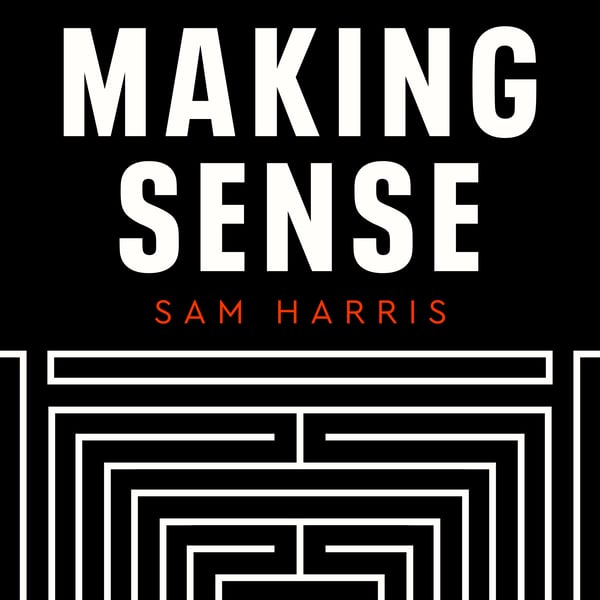#77 — The Moral Complexity of Genetics
Making Sense with Sam Harris
Waking Up with Sam Harris
4.6 • 29.1K Ratings
🗓️ 22 May 2017
⏱️ 44 minutes
🧾️ Download transcript
Summary
Sam Harris speaks with Siddhartha Mukherjee about the human desire to understand and manipulate heredity, the genius of Gregor Mendel, the ethics of altering our genes, the future of genetic medicine, patent issues in genetic research, controversies about race and intelligence, and other topics.
SUBSCRIBE to listen to the rest of this episode and gain access to all full-length episodes of the podcast at samharris.org/subscribe.
Transcript
Click on a timestamp to play from that location
| 0:00.0 | Welcome to the Making Sense Podcast. This is Sam Harris. Just a note to say that if you're |
| 0:12.1 | hearing this, you are not currently on our subscriber feed and will only be hearing |
| 0:16.2 | the first part of this conversation. In order to access full episodes of the Making Sense |
| 0:20.7 | Podcast, you'll need to subscribe at samharis.org. There you'll find our private RSS feed |
| 0:26.1 | to add to your favorite pod catcher, along with other subscriber-only content. We don't run ads |
| 0:31.2 | on the podcast, and therefore it's made possible entirely through the support of our subscribers. |
| 0:35.8 | So if you enjoy what we're doing here, please consider becoming one. |
| 0:46.5 | Siddhartha Mukherjee is an oncologist and researcher. He is an assistant professor of medicine |
| 0:51.1 | at Columbia University and a cancer physician at Columbia University and NYU Presbyterian Hospital. |
| 0:58.2 | He's a former Rhodes scholar. He graduated from Stanford, the University of Oxford, |
| 1:03.5 | where he got a PhD in studying cancer-causing viruses. And he got his medical degree from Harvard |
| 1:12.9 | Medical School. His laboratory focuses on discovering new cancer drugs. He's published articles |
| 1:18.4 | and commentary and such journals as Nature, the New England Journal of Medicine, Nureon, |
| 1:23.5 | and in publications like The New York Times, The New Yorker, The New Republic. He won the |
| 1:28.8 | Pulitzer Prize for his book on cancer, The Emperor of All Malatites, and his most recent book, |
| 1:36.2 | which is the topic of our conversation, is the gene and intimate history. |
| 1:41.3 | Okay, and now I give you Siddhartha Mukherjee. |
| 1:51.6 | I am here with Siddhartha Mukherjee. Siddhartha, thanks for coming on the podcast. |
| 1:55.4 | Yeah, my pleasure. |
| 1:56.4 | Well listen, you have a great job. It looks like you're doing amazing things in the world on at least |
| 2:02.8 | two fronts. I just want to start before we get into your book. I want to start by |
| 2:06.5 | getting you to describe what it is you do and how much of your time is spent in each of these two |
... |
Please login to see the full transcript.
Disclaimer: The podcast and artwork embedded on this page are from Waking Up with Sam Harris, and are the property of its owner and not affiliated with or endorsed by Tapesearch.
Generated transcripts are the property of Waking Up with Sam Harris and are distributed freely under the Fair Use doctrine. Transcripts generated by Tapesearch are not guaranteed to be accurate.
Copyright © Tapesearch 2025.

